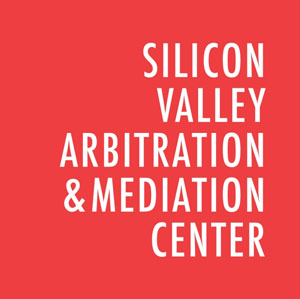The legal landscape is witnessing unprecedented changes with the integration of cutting-edge artificial intelligence (AI) tools such as OpenAI’s ChatGPT. Courts are already grappling with related challenges, from lawyers citing non-existent precedents derived from AI tools to judges requiring human verification certificates for AI-generated submissions. These developments underscore the pressing need to raise awareness of AI limitations, ensuring its responsible and practical implementation in the field of dispute resolution.
Renowned globally as a premier institution for technology dispute resolution, the Silicon Valley Arbitration and Mediation Center (SVAMC) is stepping forward to meet this challenge. With its focus on fostering practical dispute resolution in the technology sector, SVAMC encourages collaboration with elite technology companies, leading law firms, Alternative Dispute Resolution (ADR) institutions, and prestigious universities in Silicon Valley and beyond.
Following an expression of interest process in February 2023, the SVAMC established its AI Task Force led by Benjamin I. Malek of T.H.E. Chambers. This 34-member team’s task is to navigate the challenges associated with the intersection of AI and international arbitration.
A set of common benchmarks in international arbitration is especially pertinent, given that the laws of different jurisdictions may apply in an international arbitration proceeding, thus creating a non-uniform playing field. In response to this need, the SVAMC AI Task Force established an eight-member Drafting Subcommittee (Subcommittee) to produce guidelines for the appropriate use of AI in the international arbitration process. The goal is to foster a safe environment where AI can be used appropriately, offering clear guidance for participants in arbitration, while regulating potential misuse.
The Guidelines for the Use of AI in International Arbitration (AI Guidelines) will offer a set of best practices on the use of artificial intelligence in international arbitration for all those involved in the arbitration process. It will seek to address both current and future applications of artificial intelligence from a principled framework, while also bearing in mind that the technology will continue to evolve rapidly.
These AI Guidelines aim to provide a harmonized approach, akin to how the International Bar Association (IBA) Rules on the Taking of Evidence in International Arbitration have helped standardize issues around the taking of evidence. This effort is critical to fostering a global understanding and application of AI within the arbitration landscape.
The Subcommittee is finalizing the AI Guidelines, with plans to distribute the draft to a broad assembly of esteemed arbitration practitioners and industry-leading companies in August 2023. This extensive consultation process aims to gather insights and feedback from experts in the field.
The SVAMC plans to officially publish the AI Guidelines in September 2023 in English, as well as in Spanish, French, Portuguese, and Mandarin.
After publication, the SVAMC will invite arbitral institutions worldwide to share their interpretations and guidance on these regulations. These contributions will be compiled into a separate chapter titled “Institutional Guidance to the Guidelines”, providing a multifaceted view on these innovative regulations.
The SVAMC is proud to lead the way in shaping the use of AI in international arbitration. This endeavor underlines its commitment to advancing technology dispute resolution, setting an important precedent for AI’s ethical and practical application in the legal sector globally.
SVAMC AI Task Force Drafting Subcommittee: Benjamin I. Malek, Elizabeth Chan, Sofia Klot, Dmitri Evseev, Marta Garcia Bel, Orlando F. Cabrera C., Soham Panchamiya, and Duncan Pickard
Mandarin translated version
硅谷仲裁与调解中心准备就绪发表国际仲裁人工智能《应用指南》
随着日新月异的人工智能工具如 OpenAI 整合的 ChatGPT的融入,法律行业正在见证着前所未有的变化。法庭已经在努力应对各种挑战:曾经有律师引用从人工智能工具得到的虚构先例,又有法官要求人工智能的呈件还需附上人工验证证书。 这些发展反映提高业内人工智能种种局限的认识之迫切需要,以确保在争议解决中负责任和实际的行业标准。
作为全球知名的技术争议解决首选机构,硅谷仲裁与调解中心 (SVAMC) 正在积极迎接这一挑战。本中心专注于在技术领域上推动实务的争议解决,鼓励与精英技术公司、律师事务所、替代性争议解决(ADR)机构,以及硅谷及其它地方的著名大学开展合作。
本中心在2023年2月邀请各界提交意向书后,便成立了由来自 T.H.E. Chambers的 Benjamin I. Malek带领的人工智能工作小组。这支34人的团队使命就是致力应对人工智能与国际仲裁相交而带来的挑战。
因为国际仲裁程序通常会涉及不同司法管辖区的法律,从而造成不统一的竞争环境,所以在国际仲裁程序中设立一套共同基准尤为重要。为了应对这个需求,SVAMC 人工智能工作小组成立了一个八人起草小组委员会,以制定在国际仲裁过程中适当使用人工智能的指南,目标是营造一个可以适当使用人工智能的安全环境,为各仲裁参与者提供明确的指导,同时规管潜在的滥用情况。
《国际仲裁人工智能应用指南》(以下简称《应用指南》)将为所有参与仲裁过程的人员提供一套在国际仲裁中使用人工智能的最佳实践方案。它旨在从一个原则性框架出发,探讨人工智能的当前和未来应用,同时亦考虑到技术在未来的急速发展。
本《应用指南》旨在提供一个协调机制,类似于国际律师协会(IBA)发布的《国际仲裁取证规则》标准化在国际仲裁中取证的程序。这项成果对于培养国际仲裁上对人工智能的理解和应用可谓非常关键。
小组委员会正在定稿《应用指南》。为了收集领域专家的见解和反馈,中心计划会於2023年8月向备受尊敬的仲裁从业者和行业领先公司分发草案。
本中心计划于2023年9月正式以英语、中文、西班牙语、法语和葡萄牙语发布《应用指南》。
发布后,本中心将邀请各全球仲裁机构分享他们对这些规定的解释和指导, 这些提议将会编入《专业机构指导准则 》章节,提供对这些创新规定的多角度视角。
本中心以引领塑造人工智能在国际仲裁中的应用为傲。这一努力彰显了其继续推进以创新技术解决争议的承诺,为人工智能在全球法律领域的道德和实际应用设下重要先例。
硅谷仲裁与调解中心人工智能任务小组起草小组委员会的成员包括:Benjamin I. Malek、Elizabeth Chan、Sofia Klot、Dmitri Evseev、Marta Garcia、Bel Orlando F. Carbera C.、Soham Panchamiya 及 Duncan Pickard。
Translation courtesy of: Gary Lau and Ling Meng

